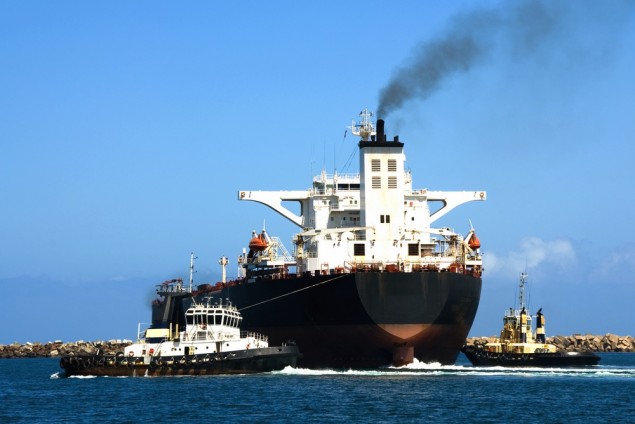A recent investigation by the UK P&I Club revealed evidence that compliance with low sulphur fuel regulations has exacerbated ever-increasing incidences of vessel main engine failures and electrical blackouts.
Engine failure, steering failure, failure of bow thrusters or complete blackout amounts to around 7% of the Club’s third party property damage claims in US$, and they say that the consequences of such problems can be little short of catastrophic in terms of the damage that can arise.
It is one thing, however, to identify that engine failures and electrical blackouts are increasing, but another entirely to understand why this might be.
Last year the US Coast Guard issued a Maritime Safety Alert in an effort to ‘increase awareness and reiterate general guidance on fuel systems and fuel switching safety in an effort to prevent propulsion losses.’
They reported that there had been a recent increase in the frequency of loss of propulsion incidents on deep draft vessels switching to operations on marine distillates. Their review indicated that a lack of maintenance and testing of certain systems, including fuel oil systems, was one of the leading causes of propulsion failures.
Echoing this, reports from pilots operating in emission control areas suggest that these problems have become quite widespread according to the UK P&I Club. The reports note that ships regularly seem to be experiencing power losses, invariably at critical times in their maneuvers, and which are attributed to ‘fuel problems’.
The Statistics
Looking for insight from the crews, the UK P&I Club gathered data across a twelve month exercise carried out by the Club’s in-house assessors via the use of a questionnaire during their routine ship visits.
Altogether 249 ships’ crews were questioned about their experience with blackouts, main engine failures and fuel switching problems. The Club did recognise, however, that there was likely to be a reluctance to admit having had such problems.
When asked directly about low-sulphur fuel only a relatively low percentage of engineers (11%) said that they had experienced, or were experiencing, any issues that they attributed to the use of low-sulphur fuel.
The problems reported included fuel oil lubrication of pumps and nozzles, sticking fuel pumps, incompatibility between fuels, generator starting problems, fuel oil leakages and delayed pick up of speed.
However, it may be the case that the data holds clues that these problems are in fact higher than directly reported.
In the study, 74% of chief engineers admitted to having experienced vessel blackouts and 46% admitted to main engine failures. In total, 249 incidents were examined.
The causes of these incidents were grouped by the UK P&I Club into a number of broad categories with both ‘Lack of fuel’ and ‘Mechanical Equipment Failure’ being categories for both blackouts and main engine maneuvering failures attributed causes.
‘Lack of fuel’ covered items such as blocked filters, water in fuel, fuel supply piping and pump failures. ‘Mechanical failure’ included items such as lack of compression, engine seizure, loss of lubrication, overheating , scavenge fire, gearbox problems and more.
The two categories accounted for 22% of given causes in the case of blackouts, rising to 28% in the case of main engine maneuvering failures.
Identifying the Cause
In fact, a substantial number of the attributed causes within these two categories are arguably issues that can result from operations under the low-sulphur fuel regulations. It may be that chief engineers are identifying the symptom rather than the actual root cause
When problems do arise on-board it is not usually due to the fact that crews are being deliberately negligent, but rather that a lack of knowledge and/or understanding has meant that potential pitfalls have not been identified or avoided.
The USCG Safety Alert on Fuel Switching Safety looking at vessels switching between heavy/intermediate fuel oils and marine distillates identified that advanced planning and careful fuel system management are critical to safely switching fuels.
It stated that vessel operators should ensure that they have a good understanding of their system requirements and limitations. This in turn allows for any modifications to be made that may be necessary to safely switch between intended fuels.
In terms of the crew, the Alert stated that proper procedures, training, and maintenance are all essential for vessels to safely switch between fuel grades.
On-Board Education
This is also a factor that Lloyd’s Register identified through their fuel consultancy specialists FOBAS and earlier this year, in association with Fathom, released the publication, Emission Control Areas: The Guide to address this knowledge gap.
This vital publication includes a hard-back training manual designed for use by the crews addressing all the compliance and operational procedures that they should be aware of for smooth operations.
The hard-back manual also clearly explains the considerations that should be made regarding the effect of switching on the vessels mechanical systems.
Key considerations identified include cylinder oil selection and feed rates, fuel compatibility, ignition and combustion characteristics, low fuel viscosity, lubricity issues, auxiliary boiler operations, rapid temperature changes and more.
This clarifies the sheer range of knowledge that crews should have when embarking on fuel switching operations. With many crews unaware of the issues, it is perhaps not surprising that serious problems with switching may be on the increase.
Indeed, the UK P&I Club concluded in their report that these are still relatively early days and the spread of emission control areas is thus far relatively limited. Stricter implementation of these regulations and an extending network of ECAs around the world may well see the problems multiplying for those aboard ship.
To view a sample of Emission Control Areas: The Manual and understand the support it can offer to crews click here.

 Join The Club
Join The Club











